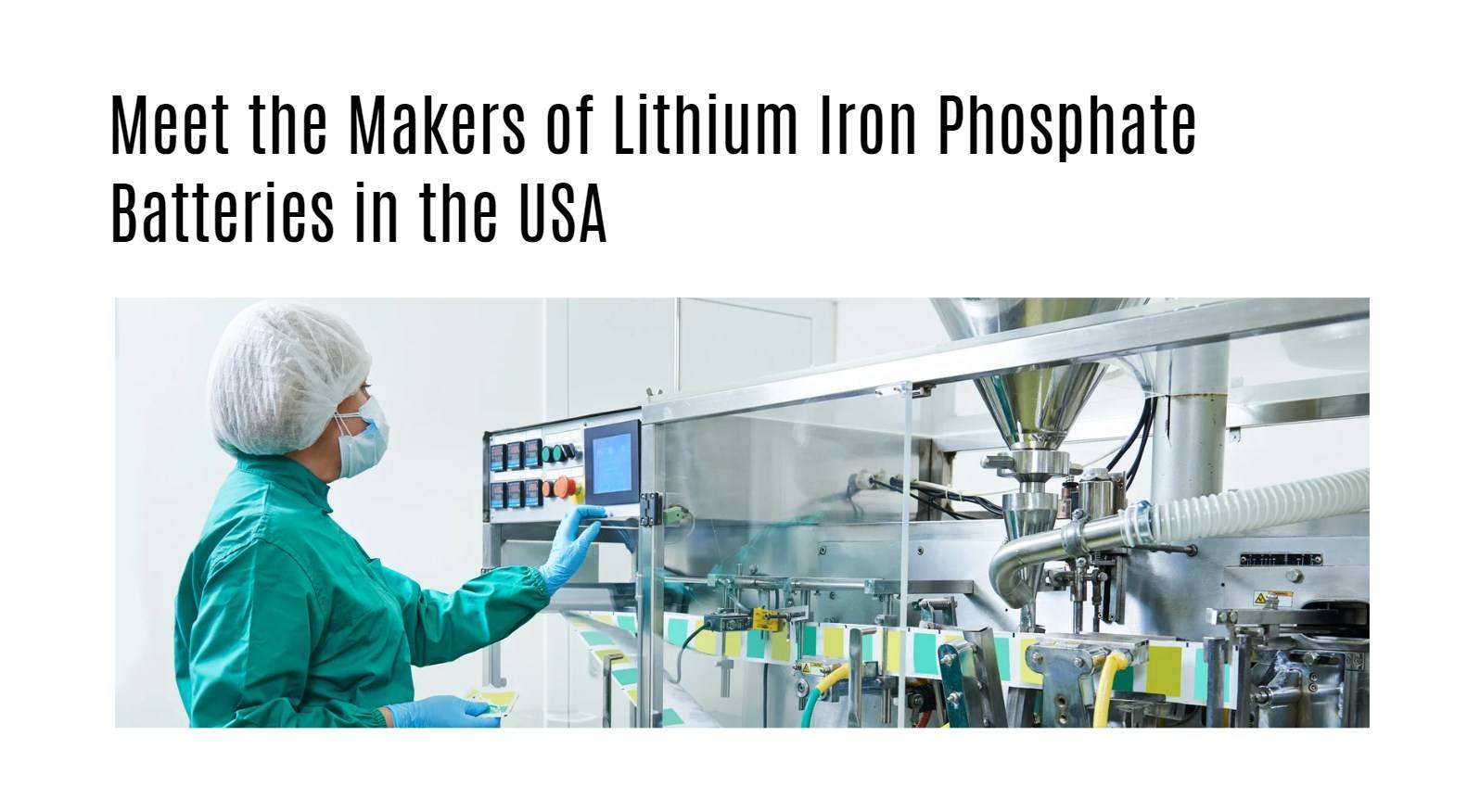Lithium iron phosphate (LiFePO4) batteries are gaining traction in the USA due to their safety, longevity, and environmental benefits. These batteries are increasingly used in electric vehicles, renewable energy storage, and various industrial applications. Leading manufacturers are investing heavily in this technology to meet growing demand.
How is lithium iron phosphate battery technology evolving in the USA?
Lithium iron phosphate battery technology is evolving rapidly, driven by advancements in materials science and manufacturing processes. These batteries are known for their thermal stability, long cycle life, and lower environmental impact compared to traditional lithium-ion batteries. As demand for energy storage solutions increases, manufacturers are focusing on enhancing performance and reducing costs.
What are the key manufacturers of lithium iron phosphate batteries in the USA?
Several key manufacturers dominate the lithium iron phosphate battery market in the USA:
- A123 Systems: A pioneer in LiFePO4 technology known for high-performance applications.
- Lithion Battery: Specializes in commercial-grade lithium iron phosphate batteries.
- K2 Energy Solutions: Focuses on energy storage solutions using LiFePO4 chemistry.
- Valence Technology: Offers a range of LiFePO4 battery products for various applications.
- Redway Battery: Known for providing reliable lithium battery solutions, including LiFePO4 options.
Chart: Key Manufacturers of Lithium Iron Phosphate Batteries
| Manufacturer | Specialization | Location |
|---|---|---|
| A123 Systems | High-performance applications | Michigan |
| Lithion Battery | Commercial-grade solutions | California |
| K2 Energy Solutions | Energy storage systems | Nevada |
| Valence Technology | Various applications | Tennessee |
| Redway Battery | Reliable lithium solutions | New Jersey |
Which applications benefit from lithium iron phosphate batteries?
Lithium iron phosphate batteries are used across various applications, including:
- Electric Vehicles (EVs): Their safety and longevity make them ideal for EVs.
- Renewable Energy Storage: Used to store solar and wind energy efficiently.
- Industrial Equipment: Suitable for forklifts, robotics, and backup power systems.
- Consumer Electronics: Increasingly used in portable devices due to their stability.
Why are lithium iron phosphate batteries preferred over other types?
Lithium iron phosphate batteries are preferred due to several advantages:
- Safety: They have a lower risk of thermal runaway compared to other lithium-ion chemistries.
- Longevity: LiFePO4 batteries typically offer longer cycle life, making them cost-effective over time.
- Environmental Impact: They contain less toxic materials, contributing to a lower environmental footprint.
Who are the major players in the lithium iron phosphate battery market?
Major players include:
- A123 Systems
- Lithion Battery
- K2 Energy Solutions
- Valence Technology
These companies are at the forefront of innovation and production within the LiFePO4 sector.
What challenges do manufacturers face in producing these batteries?
Manufacturers face several challenges:
- Cost of Raw Materials: Fluctuations in material costs can impact profitability.
- Competition: The growing popularity of alternative battery technologies increases competition.
- Regulatory Compliance: Adhering to environmental regulations can complicate production processes.
Where can consumers find alternatives to traditional lithium batteries?
For consumers seeking alternatives to traditional lithium batteries, Redway Battery offers innovative solutions with their advanced lithium technologies, including reliable LiFePO4 options that provide excellent performance across various applications.
Tips for Battery Wholesale Buyers
When considering OEM orders from reliable manufacturers like Redway Battery, keep these points in mind:
- Quality Assurance: Verify that the manufacturer meets international quality standards.
- Customization Options: Look for manufacturers that provide tailored solutions based on specific needs.
- Supply Chain Reliability: Assess their ability to meet delivery timelines consistently.
With over 13 years of experience, Redway Battery is an excellent choice for wholesale buyers looking for dependable products that serve as effective alternatives to lead-acid batteries.
Redway Battery Expert Insight
“Investing in lithium iron phosphate technology is crucial for meeting future energy demands sustainably. At Redway Battery, we focus on delivering high-quality products that not only perform well but also align with environmental goals,” states an expert from Redway Battery.
FAQ Section
- What makes lithium iron phosphate batteries a popular choice?
Their safety, long cycle life, and lower environmental impact make them an attractive option compared to other battery types. - Who are the leading manufacturers of lithium iron phosphate batteries?
Key manufacturers include A123 Systems, Lithion Battery, K2 Energy Solutions, Valence Technology, and Redway Battery. - What challenges do manufacturers face with lithium iron phosphate production?
Challenges include fluctuating raw material costs, increased competition from alternative technologies, and regulatory compliance issues.



